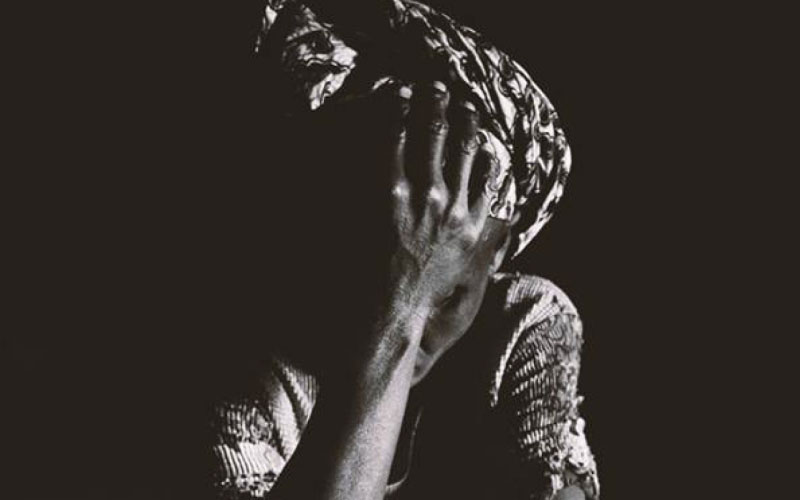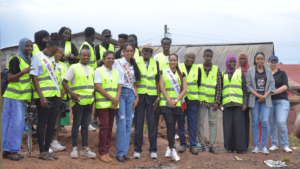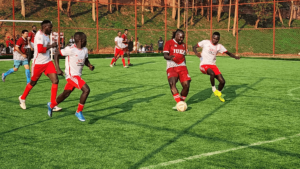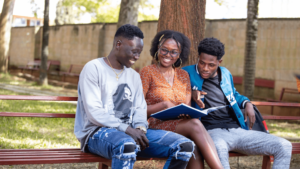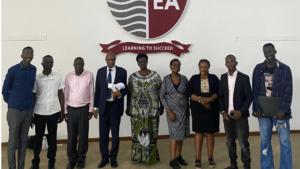The worldwide increase of coronavirus (Covid-19) cases has led to several countries, including Uganda, to launch mandatory lockdown and restriction on movement to curb the spread of the disease.
Citizens of different countries have been asked to do their part in fighting the pandemic by STAYING HOME to stay safe. Therefore, significantly affected the livelihood of many people, among them are the women and girls that are more vulnerable than ever as they are finding themselves trapped at home with their abusers, in places they should feel safest. This has led to an exacerbation of Gender-based violence which is violence directed at an individual based on their gender identity. It includes physical, sexual, verbal, coercion, psychological abuse, among others.
The world is concurrently fighting these two pandemics that can quickly kill if not prevented, and reports from countries across the world such as United Kingdom, France indicate that Gender violence-related cases have increased by 30% from 17th March, 2020. In Uganda Frank Tumwebaze, Minister of Gender, Labour and social development reported that between 30th March and 28th April around 3280 cases relating to Gender based violence had been reported to police. Uganda has registered several deaths due to domestic violence and no death of COVID.
The reasons for the increase in domestic violence during COVID times vary from; economic hardship that is faced by most families around the world. In most cases, the man is directly affected as he is usually the sole breadwinner of the home. He for some reason or another during Covid-19 times is unable to provide for the family making him feel emasculated resulting him to become a wife-beater as a way of constructing his ‘damaged patriarchal masculinity’ and reaffirming his place as family’s provider.
Some victims have lasted in abusive marriages merely because they hardly see or spend long hours with their tormentors. However, this has changed as the government has imposed stay at home measures which have forced them to spend multiple hours with their abusers that are for forcefully engaging them in non-consensual sexual intercourse, also referred to as marital rape. This is evidenced over social media as women are complaining of excessive demand for sex from their husband during the lockdown period. The pandemic has shrunken the space for women to exercise their autonomy over their bodies as it is difficult for women to take care of their reproductive and sexual health needs while confined in their homes. Women face unwanted pregnancies and sexually transmitted infections.
Following the COVID restrictions in Uganda, women cannot easily access support services meant to assist them as they are either inaccessible or disrupted with less staff to receive all calls coming in from victims.
Confinement or “isolating” is not a routine for humans as we are inherently social creatures, hence, the stress of being confined leaves some family members unhappy creating many factors to incite violence against their spouses or family members. However, we should all remember that the pandemic is not anybody’s fault and should refrain from fighting each other and instead fight these two pandemics. Couples during this time should try to have transparent and honest conversations with each other to help withstand the stress of the pandemic.
To the victims of Gender-based violence, stay healthy and do not hesitate to seek help from authorities or non-profit organisation that help in these kinds of situations. ‘Girl up initiative Uganda’ is a non-profit organisation encourages youth and victims to report Gender-based Violence cases on their toll-free number 0800200600 available 24 hours a day and also provides mental health professionals available for victims who may want to talk. The Uganda Police: Child and Family Protection Unit have also dedicated a toll-free line for Gender-based violence-related cases that is 0800199195.
To the community educating one’s self and others where to seek help, what help is available and how to engage or communicate with survivors, that is by understanding importance of anonymity and by believing and not blaming survivors. Ensuring perpetrators are held accountable (face the rule of law) for their violent behaviours this will encourage more victims to come forward.
‘Over 136 countries have accepted to make the fight against Gender-based violence part of Covid19 response plan’ stated by Susan Oregede (UN women Uganda). I, therefore, implore the Government of Uganda to strengthen the already existing prevention and redress violence against women a vital part of the national response plans for COVID19. The government should also ensure access to essential sexual and reproductive health information and services for women and girls as denying them access until pandemic emergencies are dealt with is denying them their rights as women.
These two deadly pandemics must be fought hand in hand as diverting all resources to COVID will only create another catastrophe that is women health.
By: Haular Kasozi

